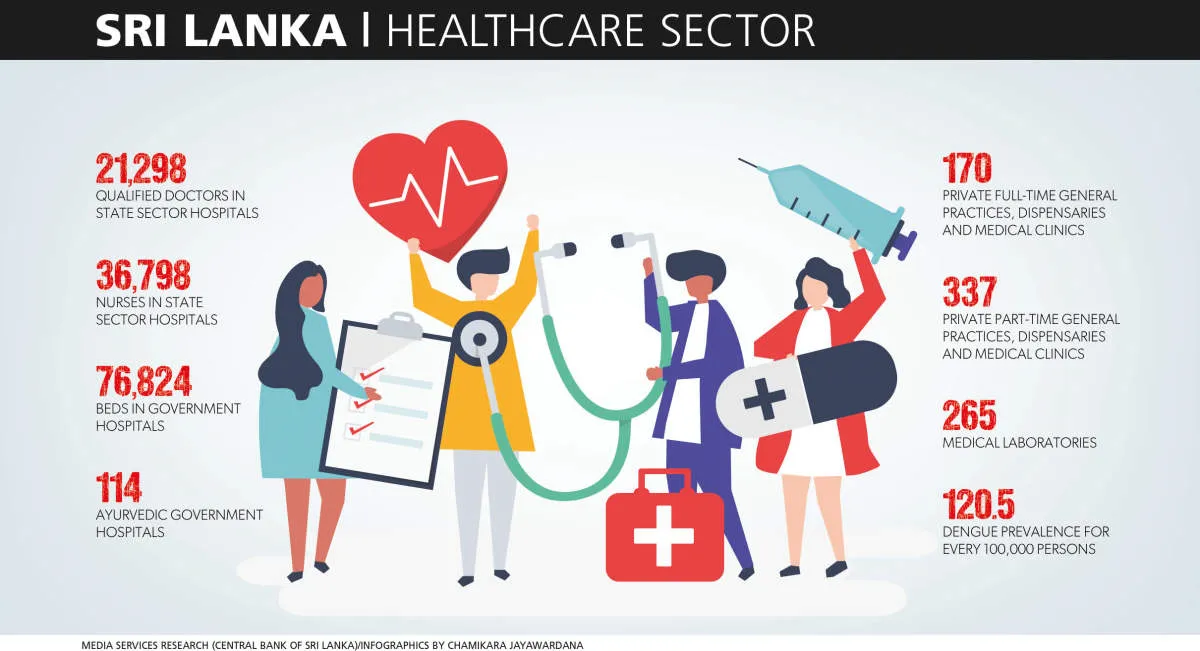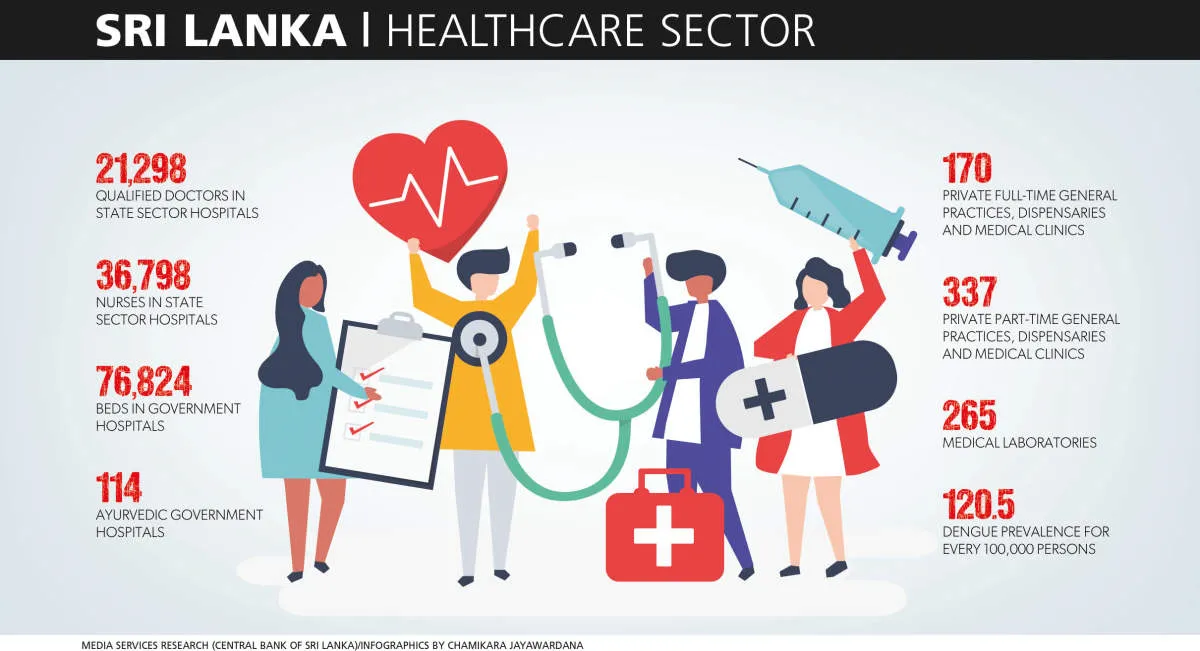
Explore the ins and outs of the healthcare job market in Sri Lanka, uncovering opportunities and challenges in this dynamic industry.
State of Healthcare Employment in Sri Lanka
When analyzing the state of healthcare employment in Sri Lanka, several key factors come into play. Firstly, the demand for healthcare professionals in the country has been steadily increasing due to an aging population and advancements in medical technology. This has led to a growing need for doctors, nurses, pharmacists, and other healthcare workers.
However, despite the rising demand, there are challenges in the healthcare job market in Sri Lanka. One significant issue is the shortage of well-trained healthcare professionals, particularly in specialized fields such as oncology and cardiology. This shortage has resulted in a competitive environment for employers seeking qualified candidates.
Additionally, the distribution of healthcare professionals across the country is uneven, with urban areas often having better access to healthcare services compared to rural regions. This disparity highlights the need for initiatives to attract and retain healthcare workers in underserved areas.
Furthermore, the remuneration and working conditions for healthcare professionals in Sri Lanka can vary widely. While some healthcare workers receive competitive salaries and benefits in private hospitals and clinics, others working in public healthcare facilities may face challenges such as heavy workloads and limited resources.
In conclusion, the state of healthcare employment in Sri Lanka presents a mix of opportunities and challenges. Addressing issues such as the shortage of specialized professionals, regional disparities in healthcare access, and improving working conditions are crucial steps to navigate the evolving healthcare job market in the country.
Types of Healthcare Jobs

When navigating the healthcare job market in Sri Lanka, it’s important to understand the various types of healthcare jobs available in the industry. These roles play a vital role in providing quality healthcare services to the population. Below are some common types of healthcare jobs you may encounter:
1. Doctors
Doctors are essential healthcare professionals responsible for diagnosing illnesses, prescribing treatments, and conducting medical procedures. They specialize in various fields such as general practice, surgery, pediatrics, and more.
2. Nurses
Nurses provide direct patient care, administer medications, and assist doctors in medical procedures. They play a crucial role in patient recovery and ensure the smooth operation of healthcare facilities.
3. Pharmacists
Pharmacists are responsible for dispensing medications, providing drug information to patients and healthcare professionals, and ensuring safe medication use. They work in pharmacies, hospitals, and healthcare settings.
4. Allied Health Professionals
Allied health professionals include physiotherapists, occupational therapists, radiographers, and medical laboratory technologists. They work alongside physicians and nurses to deliver specialized healthcare services.
5. Healthcare Administrators
Healthcare administrators manage and oversee the operations of healthcare facilities. They handle budgeting, staffing, policy implementation, and ensure efficient delivery of healthcare services.
These are just a few examples of the diverse healthcare jobs available in Sri Lanka. Each role contributes uniquely to the healthcare system, emphasizing the importance of a well-rounded workforce in meeting the healthcare needs of the population.
Required Certifications for Healthcare Professionals
As the healthcare job market in Sri Lanka continues to evolve, the demand for well-trained and certified professionals is on the rise. Healthcare professionals seeking employment in Sri Lanka are required to hold certain certifications to ensure they meet the industry standards and provide quality care to patients.
1. Medical Degree from a Recognized Institution
One of the primary requirements for healthcare professionals is to obtain a medical degree from a recognized institution. This is the foundation of their education and expertise in providing medical care.
2. Professional License
In addition to a medical degree, healthcare professionals in Sri Lanka must also obtain a professional license from the relevant authorities. This license ensures that they are legally permitted to practice medicine in the country.
3. Specialized Training and Certifications
Depending on their specific field of practice, healthcare professionals may be required to undergo specialized training and obtain certifications. For example, surgeons may need certification in specific surgical procedures, while nurses may require certifications in specialized areas such as critical care or neonatal nursing.
4. Continuing Education
Healthcare professionals are encouraged to engage in continuing education to stay updated on the latest advancements in medicine and healthcare practices. This may involve attending seminars, workshops, or pursuing higher education to enhance their skills and knowledge.
By obtaining the necessary certifications and staying current with industry standards, healthcare professionals can navigate the competitive job market in Sri Lanka and contribute effectively to the healthcare system.
Job Searching Techniques for Healthcare

When navigating the healthcare job market in Sri Lanka, it is essential to employ effective job searching techniques to increase your chances of success in finding the right opportunity in the industry.
1. Utilize Online Job Portals: One of the efficient ways to search for healthcare jobs is to utilize online job portals that specialize in healthcare vacancies. Websites like HealthJobs.lk, Healthcareers.lk, and MyDoc.lk are popular platforms where healthcare professionals can find relevant job listings.
2. Network Within the Industry: Networking is crucial in the healthcare sector. Attend industry events, conferences, and seminars to connect with professionals in the field. Building relationships and networking can open doors to unadvertised job opportunities.
3. Enhance Your Resume: Tailor your resume to highlight your experience, skills, and qualifications relevant to the healthcare industry. Utilize keywords related to healthcare to ensure your resume gets noticed by potential employers.
4. Consider Recruiters: Working with healthcare industry-specific recruitment agencies can also help in your job search. Recruiters have access to a wide range of job opportunities and can match you with suitable positions based on your qualifications.
5. Stay Updated on Industry Trends: Stay informed about the latest trends, technologies, and developments in the healthcare industry. Employers value candidates who show a keen interest in staying up-to-date with industry changes.
Interview Tips for Healthcare Positions
When navigating the healthcare job market in Sri Lanka, preparing for interviews is crucial, especially for healthcare positions that require specific skills and expertise. Here are some valuable tips to help you shine during your healthcare job interviews:
1. Research the Organization
Before the interview, make sure to research the healthcare organization thoroughly. Understand their services, mission, values, and any recent achievements. This knowledge will demonstrate your genuine interest in the organization and help you tailor your responses during the interview.
2. Showcase Your Relevant Experience
Highlight your relevant experience in healthcare settings. Discuss specific cases or projects where you demonstrated your skills, problem-solving abilities, and teamwork. Provide concrete examples to illustrate your qualifications for the healthcare position.
3. Familiarize Yourself with Healthcare Trends
Stay informed about current trends and developments in the healthcare industry. Be prepared to discuss how these trends may impact the organization you are interviewing with and how you can contribute to addressing challenges or leveraging opportunities.
4. Practice Common Interview Questions
Practice common interview questions related to healthcare positions, such as your experience working in a team, handling difficult situations, and your commitment to patient care. Utilize the STAR method (Situation, Task, Action, Result) to structure your responses effectively.
5. Demonstrate Your Soft Skills
While technical skills are essential in healthcare, don’t overlook the importance of soft skills such as empathy, communication, and problem-solving. Showcase how your soft skills have enhanced your ability to work effectively in healthcare settings.
6. Prepare Questions for the Interviewer
Prepare thoughtful questions to ask the interviewer about the healthcare position, team dynamics, opportunities for growth, and the organization’s future plans. Asking insightful questions can demonstrate your interest and engagement in the role.
Adapting to Medical Workplace in Sri Lanka

When entering the healthcare job market in Sri Lanka, it is crucial for medical professionals to understand and adapt to the unique dynamics of the medical workplace in the country.
Cultural Sensitivity: One key aspect of adapting to the medical workplace in Sri Lanka is being culturally sensitive. Respect for local customs, traditions, and communication styles is essential in building effective relationships with patients, colleagues, and the community.
Language Proficiency: Proficiency in local languages, such as Sinhala and Tamil, can significantly enhance communication with patients and colleagues. Medical professionals willing to learn and use these languages will find it easier to navigate the healthcare landscape in Sri Lanka.
Embracing Teamwork: Collaboration and teamwork are highly valued in the medical workplace in Sri Lanka. Being able to work harmoniously with multidisciplinary teams, including doctors, nurses, and support staff, is vital for providing quality care to patients.
Adapting to Resource Limitations: Healthcare resources in Sri Lanka may be limited compared to Western countries. Medical professionals need to be flexible and innovative in providing care within the constraints of the healthcare system.
Continuous Learning: Keeping up-to-date with the latest medical advancements and practices is essential for success in the Sri Lankan medical workplace. Medical professionals should be open to continuous learning and professional development opportunities.
Conclusion
In conclusion, understanding the dynamics of the healthcare job market in Sri Lanka is essential for job seekers to secure opportunities effectively.
















